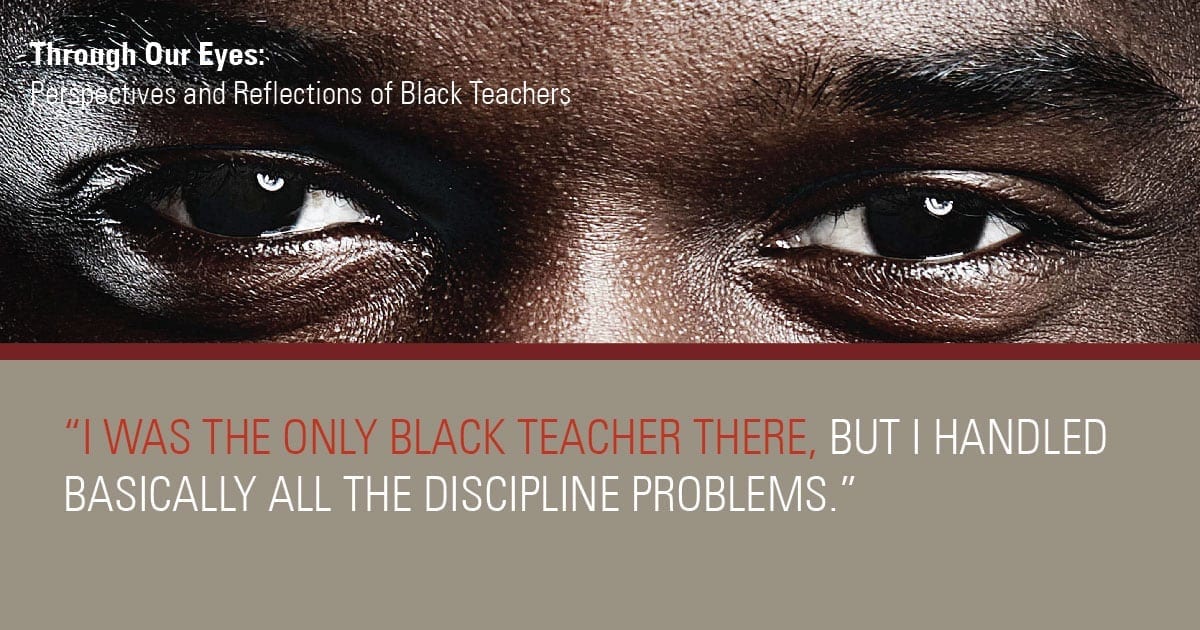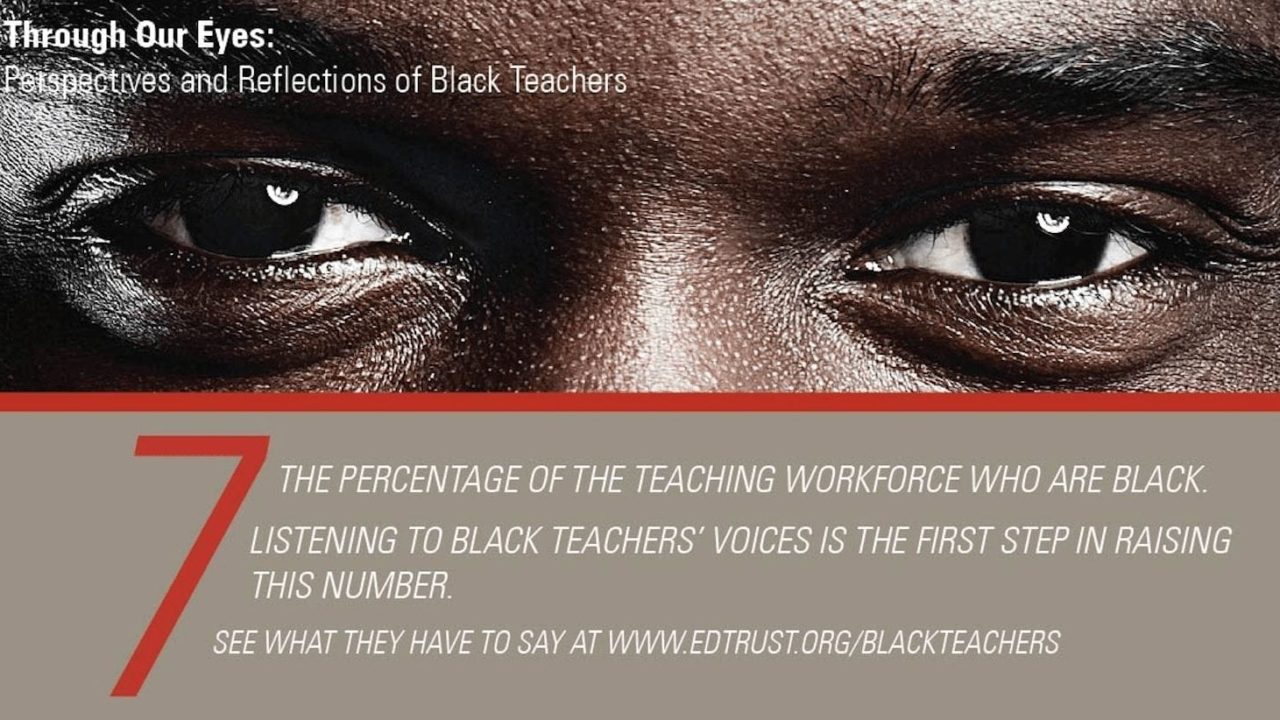Black Educators’ Reflections and Perspectives on Teaching
Ed Trust report provides a glimpse of the teaching profession through the eyes of Black teachers
WASHINGTON — Despite recent efforts to improve teacher diversity, only 7 percent of the nation’s teaching workforce is Black. And while many school districts are hard at work bringing more Black teachers into the classroom, they are leaving the profession at higher rates than their peers.
To build and maintain a teacher workforce that is representative and capable of serving an increasingly diverse student population, district leaders must pay as much attention to understanding and creating the right conditions to retain Black teachers as they do to recruiting them. That starts with listening to, and learning from, Black teachers. Researchers at The Education Trust have done just that and have published their findings in a new report.
The report, “Through Our Eyes: Perspectives and Reflections From Black Teachers,” adds rigorous qualitative data to the ongoing national conversation about teacher diversity by presenting findings from a series of nationally representative focus groups. The purpose of these focus groups was to better understand the experiences of Black teachers, including why they teach, what they believe they bring to the classroom and the field, and what challenges they experience in the workplace.
“What we found was eye-opening. Whether we were in rural or urban settings, we heard the same sentiments from Black teachers over and over again: They have high expectations for their students. They want to empower their students through knowledge. And many were ‘called’ to be teachers,” said Ashley Griffin, Ph.D., lead researcher and Ed Trust’s interim director of K-12 research. “Yet, while they shared a passion for teaching, they also shared the frustration of being pigeon-holed into specific roles, thus diminishing their opportunities for professional growth and job satisfaction.”
“Through Our Eyes” expounds on the experiences of teachers, who:
- have a penchant to connect to and teach Black students well, but found themselves restricted to only teaching Black students;
- were limited to acting as disciplinarians instead of being respected for their ability to manage their classrooms;
- put in extra time and effort, but still weren’t heard in staff meetings; and
- related well to students, but had to “tone down” their personalities to be seen as professionals.
“Teacher diversity is critically important. And contrary to conventional wisdom, it’s not just Black students who benefit from having Black teachers in their classroom. Indeed, research shows that students from all races benefit from being taught by an educator of color,” said Griffin. “The unfiltered perspectives shared in this project provide evidence exposing the racial bias in schools and school systems across the nation. These conditions impact not only Black teachers, but all the students they serve.”
Ed Trust hopes this project will prompt more people to ask for, listen to, and act on the perspective of Black teachers.
NOTE: The Education Trust also conducted focus groups with a nationally representative sample of Latino teachers and will publish those findings later this winter.
###
















